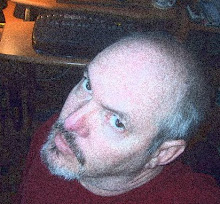In his speech last night, Dubya defended his decision to allow electronic surveillance of U.S. citizens without getting judicial approval as required both by federal law and the U.S. Constitution. He and his minions falsely imply that his critics oppose the surveillance needed to protect us from attack. As he did in drumming up support for his silly war, he wants to portray himself as a man of action compared to critics too faint of heart to do what is necessary.
In truth, his critics merely argue that the surveillance be conducted in accordance with federal law, the same law the he has sworn to faithfully uphold and that other presidents have followed in much tougher times.
In 1978, during the heart of the Cold War and under threat of potential nuclear annihilation, Congress passed a law allowing surveillance of overseas targets, but with checks and balances built into the law to protect our liberties against government encroachment. In effect, Dubya has taken it upon himself to repeal that law.
By doing so, he becomes the legislative branch, claiming for himself the sole power to set national policy no matter what federal law states. He becomes the judicial branch, claiming for himself the power to decide whether spying on U.S. citizens is reasonable and justified.
Legal advisers such as Attorney General Alberto Gonzales argue that Dubya is acting within the Constitution, but the opinion of the man who actually wrote much of that document, James Madison, should be given greater weight. And Madison called it "a fundamental principle of free government that the legislative, executive and judiciary powers should be separately and independently exercised."
Our Founding Fathers understood from experience that unchecked power soon goes awry. In his five years as president, Dubya has confirmed the wisdom of that insight time and time again, and nothing he said last night can erase that record.
2.01.2006
Subscribe to:
Post Comments (Atom)


No comments:
Post a Comment